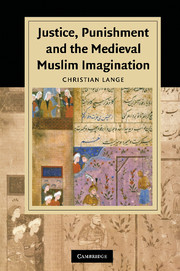Conclusion
Published online by Cambridge University Press: 21 July 2009
Summary
When Sanjar, the last Saljūq ruler of Khurāsān, was defeated and captured by a band of Ghuzz tribesmen in 548/1153, to many contemporaries it seemed as if the end of an era had arrived. Sanjar's sixty-year reign over the eastern part of the Saljūq empire had not been devoid of social unrest: unruly Turkish nomads made the roads unsafe, the ʿayyārūn and religious factions fought each other in the cities, and troops of Ismāʿīlī guerillas continued to plague the land. Public violence and punishment were features of daily life. However, the orgy of violence that broke out after Sanjar's defeat was unprecedented, and remained so until the Mongol invasion some eighty years later. At Marv, the Saljūq stronghold in the east, the Ghuzz plundered the royal palace and indiscriminately tortured people to reveal where they had hidden their riches (bi-anwāʿ-i shikanja ū ʿadhāb ranja mī-dashtand). Then they marched on Nīshāpūr, a densely populated town and important center of learning. Joined by the local riffraff (awbāsh) and some of the Saljūq soldiery, they ravaged the city. A great number of inhabitants were either tortured or put to the sword; a large group of people who had sought refuge in the Congregational Mosque, including women and children, were brutally slaughtered; whole neighbourhoods went up in flames. According to the chronicler Nīshāpūrī, the inner city was destroyed to such a degree that it “became a grazing field for cattle and a hiding place for wild animals and beasts.”
- Type
- Chapter
- Information
- Justice, Punishment and the Medieval Muslim Imagination , pp. 244 - 248Publisher: Cambridge University PressPrint publication year: 2008



